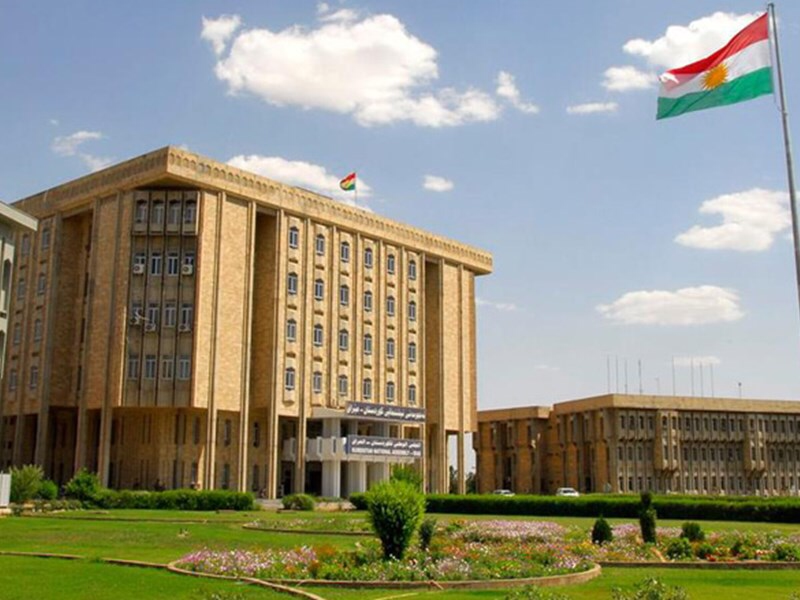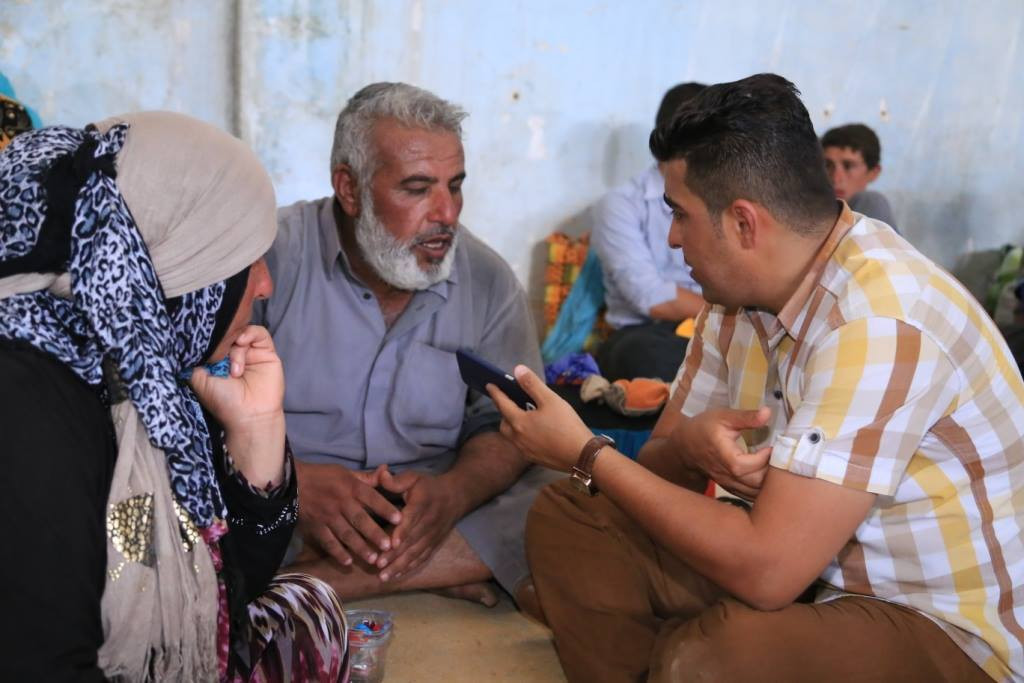Six years ago, Farman Sadiq, a freelance journalist, and a group of his colleagues has filed a complaint to the Independent Human Rights Commission of Kurdistan Region IHRCKR against the former spokesperson of the Iraqi Kurdistan Regional Government KRG for “nepotism and denial of access to information” yet the case is still pending.
The complaint two years following endorsement of access to information law by Iraqi Kurdistan parliament, has made no progress since no concrete regulations were circulated the KRG to ministries, its directorates and offices to unfold its data, making access to information for journalists in particular and the public in general a hard mission.
Sadiq, a journalist over a decade, is making his way to information in his own way to make his stories yet still optimist information access law to be elaborated for senior officials and state employed decision makers in order to ease his journalistic mission.
“The complaint was useless. I asked for information in several offices but all say the government has not outlines rules and mechanist to implement the law and couldn’t go further,” Sadiq said.
The issue of access to information by journalists and civilians cut a long path when it was endorsed by the parliament in June 2013 but leaving it just ink on paper, no changes are remarkable ahead and following the ratification of the law number 11.
The law of the right of access to information in Iraqi Kurdistan region is made up of 22 articles to enforce getting information from all government offices except six types of information: any information regarding the military and national security, negotiations, the path of investigations carried out by court, violation of copy right and intellectual property, personal dossier, and hacking private cyber accounts and websites.

Erbil- Kurdistan parliament, Iraq. Website of the parliament
According to the law, government bodies have to publish five reports annually: admin structure, budget, financial audit, projects, utilities and the complaints.
The former government, cabinet eight of the KRG, the government and the IHRCKR have drafted its guidelines about how to implement information access law yet it has not been ratified and circulated up today.
The IHRCKR is assigned to monitor the process of bringing the law into light by providing a bi-annual report based on quarter reports it is supposed to receive from government ministries and bodies.
“Cabinet eight is gone and guidelines published and now we are in touch with the government to circulate its road map but not publicized up to the moment,” said Mohammed Gomashini, spokesperson of the IHRCKR.
“Cabinet eight is gone and guidelines published and now we are in touch with the government to circulate its road map but not publicized up to the moment,”
The guidelines to be dictated by the KRG sets the borders for the law for state run offices as a base structure and how to deal with applications for information by the media and the public.
“Whenever we contact any government officer or body for incorporation about sharing information, their excuse is lack of instruction from the government to practice the law,” he added.
“If the council of ministers or information and IT department, of the KRG, desire to review the draft and go into further details, they are welcomed but this has also not been taken yet.”
Years following the endorsement of the law, journalists and NGOs advocating freedom of expression and press, call to put the law in practice yet no date set.
Azad Hamadamin, head of Kurdistan Journalists’ Syndicate, said they are in touch with the government and the IHRCKR and to held a joint meeting in order to finalize the instructions and mechanism of practicing the law.
Hamadamin is concerned that “complaints over cases of access to information will be problematic for the judiciary alike the law of journalism.”
However, some bodies have launched platforms to grant information and data to applicants.
Parliament of Kurdistan and Sulaymaniyah governor office have launched information banks as department assigned to collect and share information and data.
Applicants can fill in a form online to ask for information and data from those relevant authorities.
“This is a good step and better than nothing but this should be available all over the region,” spokesperson of IHRCKR said.
Head of Kurdistan journalists’ syndicate said such individual steps won’t replace the information access law as there should be set of guidelines inclusive for all government ministries and bodies.
The law defined six ways to access information and excluded fields. Lawsuits can be filed against public servants or bodies for denial of access to information.
The mechanism asks each body to allocate a staff to receive the applications, an application template available online, feedback in written form, otherwise orally in special cases defined in the law, record of the applications, and a duration of 2-15 days for replaying to the applications.
In case of non-cooperation and denial of sharing information per the law, a fine of 250,000 to 5 M IQD ($170-3,400) to be paid by the violator.
While the law is on paper and not effective yet, the IHRCKR receives many complaints each year by people and journalists against many government bodies denied to share information and data.
The IHRCKR has not declared a statistic of the complaints it has received in its report which refers to one case that is not relevant to journalism. IN 2014, “the group of Youth for Drama,” has addressed the IHRCKR saying its request was denied for information about Erbil cultural activities in 2014 as Arab Capital for Tourism.
The report by IHRCKR about its activities in 2014 and published in 2015, says it has addressed the council of ministers for three times in 2014 to publicize instructions about the law but no response received.
“We kept receiving complaints from organizations, people and the media staff and carried out follow up but the relevant offices are uncooperative in the excuse of absence of government instruction,” Gomashini said.
the relevant offices are uncooperative in the excuse of absence of government instruction
The only report by IHRCKR states 26 ministries and establishments has nominates a special employee per the information access law yet only few of it has filed the required annual reports which are incomplete since it has not addressed the required fields to cover.
Gomashini applauded the law saying its one of the prominent in the region and a step toward transparency yet “the fight against ISIS, Covid-19 pandemic and other crisis (negatively) affected it, however it is still alive and its articles are vibrant and won’t die.”
The government has not set a road map when its final instruction will be circulated officially to put the law into action.
Namiq Hawrami, Spokesperson of the ministry of culture said the issue is to be addressed by the council of ministers.
JRG spokesman Jutyar Adel has not responded to the calls and message sent to him via different applications regarding the plan of the government to address the law and its long-awaited instructions.
Salma Fatih, head of culture and civil society committee in the parliament, said “the law is valid at courts and instructions to be sent by the government to its offices in order to materialize the law, which should be done.”
Fatih said they have contacted the government and the instructions are ready and the final step is to circulate it for public offices.
“This issue is pending and the instructions to be publicized so that the law is in practice and the journalists to act within the framework of the law,” she added.
The obstacles hindering the law to come into light made the missions of the journalists harsh yet it could not curb their efforts to cover sensitive issues and current affairs.
Sadiq believes not only the government, yet even the parliament has closed its dioors in the face of the media.
“The law has been blocked and the KRG should issue its instructions to implement the law in away that public and private sector offices and bodies should be committed to provide the journalist with information.”





